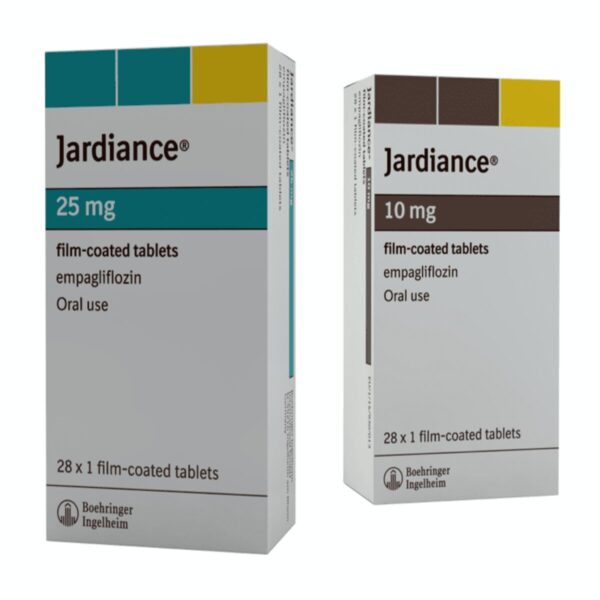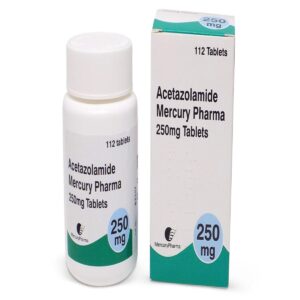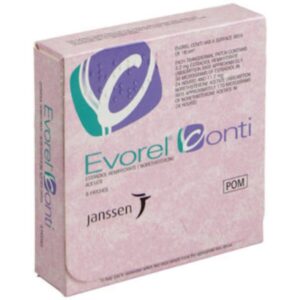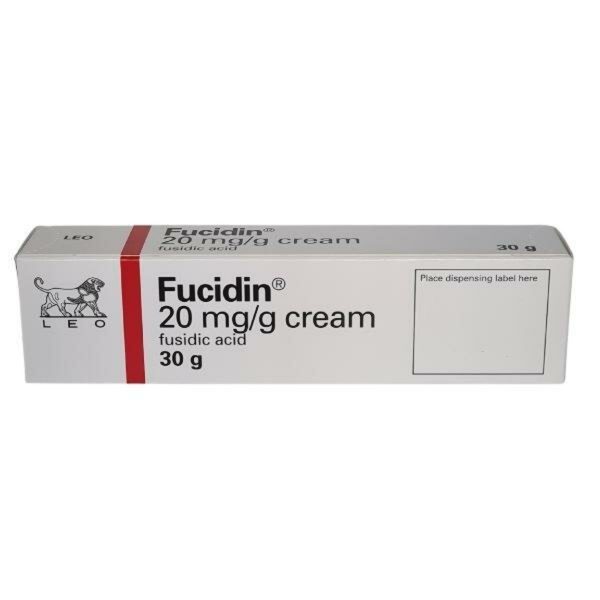- Glimepiride 1mg Tablets
- Glimepiride 2mg Tablets
- Glimepiride 3mg Tablets
- Glimepiride 4mg Tablets
- Description
- Additional Information
- Brand
- How To Use
- Product Details
- Side Effects
- Ingredients
- How to Store
- Patient Information leaflet
- Reviews (0)
- Questions & Answers
Glimepiride Tablets, 30 Tablets
Introducing Glimepiride Tablets: Effectively Managing Type II Diabetes
Discover a reliable solution for managing Type II diabetes with Glimepiride Tablets, a part of the oral hypoglycaemics group of medications. When your body struggles to produce sufficient insulin to regulate blood sugar levels, Glimepiride comes to the rescue as an essential tool for maintaining healthy glucose levels.
Key Features:
- Active Ingredient: The primary component in Glimepiride Tablets is Glimepiride, a potent oral hypoglycaemic that aids in controlling blood sugar levels.
- Effective Treatment: Glimepiride is specifically formulated to address non-insulin dependent (Type II) diabetes mellitus. When diet, exercise, and weight reduction alone cannot effectively manage your diabetes, Glimepiride steps in to provide the necessary support.
- Diverse Strengths: We offer Glimepiride Tablets in four convenient strengths to suit your individual needs:
- Glimepiride 1mg Tablets
- Glimepiride 2mg Tablets
- Glimepiride 3mg Tablets
- Glimepiride 4mg Tablets
Why Choose Glimepiride Tablets?
Living with Type II diabetes shouldn’t be a daily struggle. Glimepiride Tablets empower you to take control of your health and maintain stable blood sugar levels. With a wide range of strengths available, your healthcare provider can tailor the dosage to match your unique requirements.
Directions for Use:
Always follow your healthcare provider’s instructions for dosing and administration. Glimepiride Tablets are typically taken orally, and your healthcare professional will guide you on the appropriate dosage based on your medical history and current health condition.
Note:
- Consultation Required: Before starting any new medication, including Glimepiride Tablets, it’s crucial to consult your healthcare provider to ensure that this medication is suitable for your specific health circumstances.
- Lifestyle Matters: Remember, while Glimepiride is a powerful tool, maintaining a healthy lifestyle through proper diet, regular exercise, and weight management remains vital for effectively managing Type II diabetes.
Rediscover the joy of a more balanced and active life with Glimepiride Tablets. Let this trusted oral hypoglycaemic become your partner in keeping your blood sugar levels in check. Choose health and well-being with Glimepiride Tablets today.
Glimepiride Tablets can be used to treat cats, dogs and horses when prescribed by a Vet
Glimepiride Tablets Reviews
After using Glimepiride Tablets, it’s helpful to let others know about your experience. Reviews of an item help other users know that medicines received have helped the condition it is claimed for, how well the treatment worked or any issues to be aware of. We invite our users to leave a review of both their treatment and of the service provided. Click on the reviews tab to see if there has been feedback on this item.
What is the price of Glimepiride Tablets?
The price of Glimepiride Tablets starts from £4.50
Where can you buy Glimepiride Tablets?
You can buy Glimepiride Tablets at Dock Pharmacy Essex UK, UK Online Pharmacy.
Can you buy Glimepiride Tablets Over the counter?
Glimepiride Tablets is not available to buy over the counter. You need a prescription to buy Glimepiride Tablets
| Brand | |
|---|---|
| Strength | 1mg Tablets, 2mg Tablets, 3mg Tablets, 4mg Tablets |
Brand
Glimepiride
How To Use
How to take Glimepiride tablets.
Always take Glimepiride tablets exactly as your doctor has told you. You should check with your doctor or pharmacist if you are not sure.
Taking this medicine
- Take this medicine by mouth, just before or with the first main meal of the day (usually breakfast). If you do not have breakfast you should take the medicine on schedule as prescribed by your doctor. It is important not to leave out any meal when you are on Glimepiride
- The tablet can be divided into equal doses. Swallow the tablets with at least half glass of water. Do not crush or chew the tablets.
Product Details
What you need to know before you take Glimepiride Tablets
. Do not take Glimepiride: • if you are allergic to glimepiride or other sulfonylureas (medicines used to lower your blood sugar such as glibenclamide) or sulfonamides (medicines for bacterial infections such as sulfamethoxazole) or any of the other ingredients of this medicine (listed in section 6) • if you have insulin dependent diabetes (Type I diabetes mellitus) • if you have diabetic ketoacidosis (a complication of diabetes when your acid level is raised in your body and you may have some of the following signs: fatigue, feeling sick (nausea), frequent urination and muscular stiffness) • if you are in a diabetic coma • if you have severe kidney disease • if you have a severe liver disease Do not take this medicine if any of the above apply to you. If you are not sure, talk to your doctor or pharmacist before taking Glimepiride. Warnings and precautions: Talk to your doctor or pharmacist before taking Glimepiride if: • You are recovering from an injury, operation, infections with fever, or from other forms of stress, inform your doctor as temporary change of treatment may be necessary. • You have a severe liver or kidney disorder . If you are not sure if any of these apply to you, talk to your doctor or pharmacist before taking Glimepiride. Lowering of the haemoglobin level and breakdown of red blood cells (haemolytic anemia) can occur in patients missing the enzyme glucose-6-phosphate dehydrogenase. The information available on the use of Glimepiride in people under 18 years of age is limited. Therefore, its use in these patients is not recommended. Important information about hypoglycaemia (low blood sugar) When you take Glimepiride, you may get hypoglycaemia (low blood sugar). Please see below for additional information about hypoglycaemia, its signs and treatment. Following factors could increase the risk of you getting hypoglycaemia: • Undernourishment, irregular meal time, missed or delayed meal or period of fasting • Changes to your diet • Taking more Glimepiride than needed • Having kidneys that do not work properly • Having severe liver disease • If you suffer from particular hormone-induced disorders (disorders of the thyroid glands, of the pituitary gland or adrenal cortex) • Drinking alcohol (especially when you skip a meal) • Taking certain other medicines (see below “Other medicines and Glimepiride”) • If you increase the amount of exercise you do and you don’t eat enough food or eat food containing less carbohydrate than usual. Signs of hypoglycaemia include: • Hunger pangs, headache, nausea, vomiting, sluggishness, sleepiness, problems sleeping, restlessness, aggression, problems with concentration, reduced alertness and reaction time, depression, confusion, problems with your speech and sight, slurred speech, shakiness, partial paralysis, sensory disturbances, dizziness, helplessness • The following signs may also occur: sweating, clammy skin, anxiety, fast or increased heart beat, high blood pressure, awareness of your heart beat (palpitations), sudden strong pain in the breast that may radiate into neighbouring areas (angina pectoris and cardiac arrhythmias) If blood sugar levels continue to drop you may suffer from considerable confusion (delirium), develop fits (convulsions), lose self control, breathing may be shallow and your heart beat slowed down, you may fall into unconsciousness. The clinical picture of a severe reduced blood sugar level may resemble that of a stroke. Treating hypoglycaemia: In most cases the signs of reduced blood sugar vanish very quickly when you consume some form of sugar, e.g. sugar cubes, sweet juice, sweetened tea. You should therefore always take some form of sugar with you (e.g. sugar cubes). Remember that artificial sweeteners are not effective. Please contact your doctor or go to the hospital if taking sugar does not help or if the symptoms recur. Laboratory tests The level of sugar in your blood or urine should be checked regularly. Your doctor may also take blood tests to monitor your blood cell levels and liver function. Children and adolescents Glimepiride is not recommended for use in children under 18 years of age. Other medicines and Glimepiride Tell your doctor or pharmacist if you are taking, have recently taken or might take any other medicines. Your doctor may wish to change your dose of Glimepiride if you are taking other medicines, which may weaken or strengthen the effect of Glimepiride on the level of sugar in your blood. The following medicines can increase the blood sugar lowering effect of Glimepiride. This can lead to a risk of hypoglycaemia (low blood sugar): • Other medicines to treat diabetes mellitus (such as insulin or metformin) • Medicines to treat pain and inflammation (phenylbutazone, azopropazone, oxyphenbutazone, aspirin-like medicines) • Medicines to treat urinary infections (such as some long acting sulfonamides) • Medicines to treat bacterial and fungal infections (tetracyclines, chloramphenicol, fluconazole, miconazole, quinolones, clarithromycin) • Medicines to inhibit blood clotting (coumarin derivatives such as warfarin) • Medicines supporting muscle build up (anabolics) • Medicines used for male sex hormone replacement therapy • Medicines to treat depression (fluoxetine, MAO inhibitors) • Medicines lowering high cholesterol level (fibrates) • Medicines lowering high blood pressure (ACE inhibitors) • Medicines called anti-arrhythmic agents used to control abnormal heart beat (disopyramide) • Medicines to treat gout (allopurinol, probenecid, sulfinpyrazone) • Medicines to treat cancer (cyclophosphamide, ifosfamide, trofosfamide) • Medicines used to reduce weight (fenfluramine) • Medicines to increase circulation when given in a high dose intravenous infusion (pentoxifylline) • Medicines to treat nasal allergies such as hay fever (tritoqualine) • Medicines called sympatholytics to treat high blood pressure, heart failure, or prostate symptoms The following medicines may decrease the blood sugar lowering effect of Glimepiride. This can lead to a risk of hyperglycaemia (high blood sugar level): • Medicines containing female sex hormones (oestrogens, progestogens) • Medicines to treat high blood pressure called thiazide diuretics (water tablets) • Medicines used to stimulate the thyroid gland (such as levothyroxine) • Medicines to treat allergies and inflammation (glucocorticoids) • Medicines to treat severe mental disorders (chlorpromazine and other phenothiazine derivatives) • Medicines used to raise heart beat, to treat asthma or nasal congestion, coughs and colds, used to reduce weight, or used in life-threatening emergencies (adrenaline and sympathomimetics) • Medicines to treat high cholesterol level (nicotinic acid) • Medicines to treat constipation when they are used long term (laxatives) • Medicines to treat fits (phenytoin) • Medicines to treat nervousness and sleep problems (barbiturates) • Medicines to treat increased pressure in the eye (azetazolamide) • Medicines to treat high blood pressure or low blood sugar (diazoxide) • Medicines to treat infections, tuberculosis (rifampicine) • Medicines to treat severe low blood sugar levels (glucagon) The following medicines can increase or decrease the blood sugar lowering effect of Glimepiride: • Medicines to treat stomach ulcers (called H2 antagonists) • Medicines to treat high blood pressure or heart failure such as beta-blockers, clonidine, guanethidine and reserpine. These can also hide the signs of hypoglycaemia, so special care is needed when taking these medicines Glimepiride may either increase or weaken the effects of the following medicines: • Medicines inhibiting blood clotting (coumarin derivatives such as warfarin). • Colesevelam, a medicine used to reduce cholesterol, has an effect on the absorption of Glimepiride. To avoid this effect, you should be advised to take Glimepiride at least 4 hours before colesevelam Glimepiride with food, drink and alcohol Alcohol intake may increase or decrease the blood sugar lowering action of Glimepiride in an unpredictable way. Pregnancy and breast-feeding Pregnancy Glimepiride should not be taken during pregnancy. Tell your doctor if you are, you think you might be or are planning to become pregnant. Breast-feeding Glimepiride may pass into breast milk. Glimepiride should not be taken during breast feeding. If you are pregnant or breast-feeding, think you may be pregnant or are planning to have a baby, ask your doctor or pharmacist for advice before taking this medicine. Driving and using machines Your ability to concentrate or react may be impaired if your blood sugar is lowered (hypoglycaemia), or raised (hyperglycaemia) or if you develop visual problems as a result of such conditions. Bear in mind that you could endanger yourself or others (e.g. when driving a car or using machines). Please ask your doctor whether you can drive a car if you: • have frequent episodes of hypoglycaemia, • have fewer or no warning signals of hypoglycaemia. Glimepiride tablets contains lactose If you have been told by your doctor that you have an intolerance to some sugars, contact your doctor before taking this medicinal product.
Side Effects
Possible side effects
Like all medicines, Glimepiride can cause side effects, although not everybody gets them. Tell your doctor immediately if you experience any of the following symptoms: • Allergic reactions (including inflammation of blood vessels, often with skin rash) which may develop into serious reactions with difficulty in breathing, fall in blood pressure and sometimes progressing to shock • Abnormal liver function including yellowing of the skin and eyes (jaundice), problems with the bile flow(cholestasis), inflammation of the liver (hepatitis) or liver failure • Allergy (hypersensitivity) of the skin such as itching, rash, hives and increased sensitivity to sun. Some mild allergic reactions may develop into serious reactions • Severe hypoglycaemia including loss of consciousness, seizures or coma Some patients experienced the following side effects whilst taking Glimepiride: Rare side effects (may affect up to 1 in 1,000 people) • Lower blood sugar than normal (hypoglycaemia) (see section 2) • Decrease in the number of blood cells – Blood platelets (which increases risk of bleeding or bruising) – White blood cells (which makes infections more likely) – Red blood cells (which can make the skin pale and cause weakness or breathlessness) These problems generally get better after you stop taking Glimepiride • Changes in your sense of taste. • Loss of hair. • Weight gain. Very rare side effects (may affect up to 1 in 10,000 people) • Allergic reactions (including inflammation of blood vessels, often with skin rash) which may develop into serious reactions with difficulty in breathing, fall in blood pressure and sometimes progressing to shock. If you experience any of these symptoms, tell your doctor immediately • Abnormal liver function including yellowing of the skin and eyes (jaundice), impairment of the bile flow(cholestasis), inflammation of the liver (hepatitis) or liver failure. If you experience any of these symptoms, tell your doctor immediately • Feeling or being sick, diarrhoea, feeling full or bloated, and abdominal pain • Decrease in the amount of sodium level in your blood (shown by blood tests) • Not known side effects (frequency cannot be estimated from the available data)Allergy (hypersensitivity) of the skin may occur such as itching, rash, hives and increased sensitivity to sun. Some mild allergic reactions may develop into serious reactions with swallowing or breathing problems, swelling of your lips, throat or tongue. Therefore in the event of one of these side effects, tell your doctor immediately • Allergic reactions with sulfonylureas, sulfonamides, or related medicines may occur • Problems with your sight may occur when beginning treatment with Glimepiride. This is due to changes in blood sugar levels and should soon improve • Increased liver enzymes • Severe unusual bleeding or bruising under the skin Reporting of side effects If you get any side effects, talk to your doctor, pharmacist or nurse. This includes any possible side effects not listed in this leaflet. You can also report side effects directly via the Yellow Card Scheme, website www.mhra.gov.uk/yellowcard. By reporting side effects you can help provide more information on the safety of this medicine.
Ingredients
What Glimepiride tablet contains
The active substance is Glimepiride.
The other ingredients are lactose, sodium starch glycolate, povidone, sodium lauryl sulphate, magnesium stearate, microcrystalline cellulose, red iron oxide E172 (1mg tablets), yellow iron oxide E172 (2mg and 3mg tablets) and indigo carmine aluminium lake E132 (2mg and 4mg tablets).
How to Store
How to store glimepiride tablets
- Keep this medicine out of the sight and reach of children
- Do not use this medicine after the expiry date which is stated on the label after EXP. The expiry date refers to the last day of that month.
- Do not store the tablets above 25° C Store in the original package in order to protect from moisture. Do not use this medicine if you notice visible signs of deterioration. Do not throw away any medicines via wastewater or household waste. Ask your pharmacist how to throw away medicines you no longer use. These measures will help protect the environment.
Patient Information leaflet
Click here for the Patient Information leaflet
Please read before using the product
Only logged in customers who have purchased this product may leave a review.
Questions and answers of the customers
There are no questions yet, be the first to ask something for this product.
You Might Also Like
£32.40 – £121.00
Metformin Oral Solution – Metformin Hydrochloride Oral Solution is available in 3 strengths
- Metformin 500mg/5ml Oral Solution
- Metformin 850mg/5ml Oral Solution
- Metformin 1000mg/5ml Oral Solution
Learn More
£32.40 – £121.00
- Availability: in stock
Original price was: £55.50.£52.45Current price is: £52.45.
JARDIANCE 10MG FILM COATED TABS
Learn MoreOriginal price was: £55.50.£52.45Current price is: £52.45.
- Availability: in stock
£5.50 – £23.50
Metformin Tablets – Metformin hydrochloride is available in 2 strengths
- Metformin 500mg Tablets
- Metformin 850mg Tablets
Learn More
£5.50 – £23.50
- Availability: in stock
Original price was: £60.03.£58.80Current price is: £58.80.
Original price was: £60.03.£58.80Current price is: £58.80.
- Availability: in stock
Glipizide Tablets 5mg – Minodiab 5mg Tablets, 28 Tablets Introducing Glipizide Tablets 5mg – Your Solution for Diabetes Management Are you seeking effective support in managing your Type II diabetes? Look no further than Glipizide Tablets 5mg, a trusted solution designed to help you take control of your blood glucose levels. Specially formulated with glipizide, […]
Learn More£5.50
- Availability: in stock
Other Products From This Seller
£3.99 – £7.25
- FML Eye Drops – Fluorometholone Eye Drops 0.1% for effective eye inflammation relief.
- Available in 5ml and 10ml sizes – choose the right size for your needs.
- Treats eye inflammation, allergies, and irritation in both humans and pets.
- Veterinary approved – safe for pets under guidance.
- Easy application – quick relief without complicated steps.
£3.99 – £7.25
- Availability: in stock
GlucoRx Vet Test Strips, 50 Test Strips Reliable Blood Glucose Monitoring for Pets Ensure accurate, effective diabetes management for your pet with GlucoRx Vet Test Strips. Specially designed for pets, these pet glucose test strips provide precise blood glucose readings when used with the GlucoRx Vet Meter, making it easier to monitor and manage your […]
Learn More£47.95
- Availability: in stock
£58.50
- Designed Specifically for Cats and Dogs: Tailored to meet pets’ unique glucose monitoring needs.
- Trusted Accuracy and Reliability: Delivers precise results you can depend on for effective diabetes management.
- Supports a Healthy, Active Life for Pets: Helps maintain normal blood glucose levels, promoting overall well-being.
- Advanced Haematocrit Correction Technology: Ensures accurate readings by adjusting for red blood cell levels in each test.
£58.50
- Availability: in stock
£39.00 – £79.20
Varenicline Tablets, 28 Tablets Effective Smoking Cessation Aid Take the first step toward a smoke-free life with Varenicline Tablets – a powerful, prescription-based smoking cessation medication, formerly known as Champix. Designed to help you quit smoking without nicotine replacement, Varenicline works by reducing cravings and diminishing the rewarding effects of smoking. Available in two strengths: […]
Learn More£39.00 – £79.20
- Availability: in stock
Veoza 45mg Tablets – Fezolinetant 45mg, 28 Tablets Non-Hormonal Menopause Relief for Hot Flashes & Night Sweats Experience effective, non-hormonal relief from hot flashes and night sweats with Veoza 45mg Tablets (Fezolinetant), specially formulated for menopausal women dealing with moderate-to-severe vasomotor symptoms (VMS). These symptoms, commonly known as hot flashes and night sweats, often disrupt […]
Learn More£66.70
- Availability: in stock
Product Highlights:
- Complete cold & flu relief in one convenient capsule.
- Non-drowsy for daytime use and focus.
- Relieves multiple symptoms: headache, fever, congestion, and sore throat.
- Fast-acting formula with trusted ingredients.
£5.99
- Availability: in stock
Fungizone 50mg Vial – Amphotericin B 50000IU, 20ml Fight serious fungal infections effectively with Fungizone 50mg Vial, a powerful antifungal solution containing Amphotericin B 50000IU. This injectable medication is trusted in the medical and veterinary fields for its efficacy in treating severe fungal infections, including those that do not respond to other treatments. Known for […]
Learn More£24.75
- Availability: in stock
Etrivex Shampoo – Clobetasol 500mcg Shampoo,125ml Discover fast and effective relief from scalp psoriasis with Etrivex Shampoo, a clinically proven solution containing Clobetasol 500mcg per application. This potent corticosteroid shampoo is specifically designed to manage and alleviate symptoms of psoriasis, such as itchiness, flaking, and redness, targeting the scalp for visible improvement and comfort. With […]
Learn More£14.50
- Availability: in stock
Adcortyl Injection – Triamcinolone acetonide 10mg/ml Inj, 5ml Vial Powerful Anti-Inflammatory Relief for Humans and Pets Adcortyl Injection (Triamcinolone Acetonide injection 10mg/ml) is a potent corticosteroid injection used to manage inflammation and reduce symptoms associated with various conditions, such as arthritis, allergic reactions, and certain skin disorders. Formulated to provide targeted, long-lasting relief, Adcortyl Injection […]
Learn More£5.60
- Availability: in stock
£109.50 – £266.50
Alimemazine Oral Solution, 100ml Effective Allergy and Anxiety Relief, Available in Multiple Strengths Find targeted relief from allergy symptoms, anxiety, and irritability with Alimemazine Oral Solution, 100ml. Known for its antihistamine and calming effects, Alimemazine is a versatile solution that helps manage itching, rashes, and other allergic reactions while also providing relief from anxiety and […]
Learn More£109.50 – £266.50
- Availability: in stock






















Reviews
There are no reviews yet